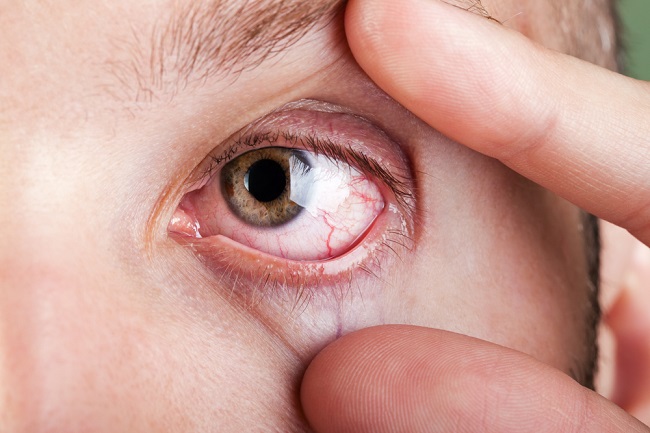ESBL or extended-spectrum beta-lactamases are enzymes produced by certain bacteria.This enzymecause bacteriacan withstand antibiotics normal ones can kill him. This is what causes ESBL-producing bacterial infections difficult to overcome.
Escherichia coli (E. coli) and Klebsiella pneumonia is the most common bacteria found as ESBL-producing bacteria. Generally, these two bacterial infections can be treated with ordinary antibiotics, such as penicillins and cephalosporins.

However, ESBL creates immunity to these antibiotics so that stronger antibiotics are needed to overcome them.
The following is a further explanation regarding E. coli and Klebsiella pneumonia:
- Escherichia coli ( coli)These bacteria occur naturally in the intestines and are generally harmless. However, some types E. coli can also infect the body and cause disease. This infection can be transmitted through food, drink, or contact with an infected person.
- KlebsiellaThese bacteria are found in the intestines, mouth and nose of humans. Although generally harmless, Klebsiella can also cause nosocomial infections, namely infections that are spread in health facilities.
Causes of ESBL-Producing Bacterial Infection
ESBL-producing bacterial infections can be spread from person to person through direct touch, contaminated objects, or splashes of saliva from an infected person.
Generally, ESBL-producing bacteria are found in many health facilities, such as hospitals. For example, a person can catch this bacterium if he shakes hands with a healthcare worker who is likely to frequently touch contaminated surfaces.
Risk factors for ESBL-producing bacterial infection
There are a number of factors that can increase a person's risk of developing an ESBL-producing bacterial infection, namely:
- Frequent contact with infectious disease patients, for example due to working as a doctor or nurse in a hospital
- Undergo hospitalization in the long term
- Have a recent or long-term history of taking antibiotics, especially high doses of antibiotics
- Using an IV, urinary catheter, and endotracheal tube (ETT)
- Having an injury that causes injury, such as a burn
- Undergo surgery
- Suffering from a chronic (long-term) disease, such as diabetes
- old age
Symptoms of ESBL-Producing Bacterial Infection
Symptoms of an ESBL-producing bacterial infection may differ, depending on the infected organ and the type of bacteria. This infection is most common in the urinary tract and intestines.
In urinary tract infections, the symptoms that may arise are:
- Burning feeling when urinating
- Frequent urination, but little by little
- Urine is cloudy or reddish
- Lower stomach pain
If an ESBL-producing bacterial infection occurs in the gut, symptoms may include:
- Diarrhea
- Loss of appetite
- stomach cramps
- bloating
- Fever
ESBL-producing bacteria can also invade the skin, especially in open wounds. Symptoms that can appear are redness and discharge in the infected area.
When to go to the doctor
Check with your doctor if you experience any of the symptoms listed above, especially if you have factors that increase your risk of getting infected with ESBL-producing bacteria.
You also need to see a doctor immediately if you have a fever that does not improve after 3 days of taking the antibiotics prescribed by your doctor or has diarrhea that does not improve or is even accompanied by blood.
Diagnosis of ESBL-producing Bacterial Infection
The doctor will start the examination by asking about the symptoms experienced, medical history, and medications that are being consumed by the patient. Next, the doctor will perform a thorough physical examination.
To confirm the diagnosis, the doctor will perform further examinations, namely:
- Taking a sample of blood, urine, or wound fluid, to detect bacterial infection
- Antibiotic resistance test, to detect whether bacteria produce ESBL or not
If an ESBL-producing bacterial infection is confirmed, the doctor will perform an examination to determine which type of antibiotic is effective in treating the patient.
ESBL-producing Bacterial Infection Treatment
Treatment of ESBL-producing bacterial infections will be tailored to the bacteria causing the infection. Generally, treatment is done with medication. However, the drugs that can be given are limited because this infection makes the bacteria resistant to antibiotics.
Even so, ESBL-producing bacterial infections can be overcome if the right antibiotics are found. Medications that doctors commonly use to treat this condition include:
- Carbapenem class of drugs
- Fosfomycin
- Beta-lactamase inhibitors, such as sulbactam and tazobactam
- Non-beta-lactam antibiotics, eg macrolides
- Colistin
Keep in mind that the consumption of the above antibiotics or any antibiotics must be accompanied by a doctor's direction. This is because each patient has different conditions so that the type of drug, dose of drug, and duration of use can also be different.
In some cases, ESBL-producing bacterial infections need to be treated by hospitalization. Patients may also be treated in isolation to ensure the bacteria do not spread to other people in the hospital.
Complications of ESBL-Producing Bacterial Infection
If bacteria have developed resistance to many antibiotics, treating ESBL-producing bacterial infections becomes difficult and can be protracted. In addition, if treatment is delayed, the infection can develop and cause more severe symptoms, even death.
ESBL-producing bacteria can also spread and enter the bloodstream (sepsis). If this condition occurs, the symptoms that appear are:
- Fever
- Shivering
- Nauseous
- Throw up
- Hard to breathe
- Confusion
Prevention of ESBL-Producing Bacterial Infection
Some things that can be done to prevent the transmission of ESBL-producing bacterial infections include:
- Always wash your hands properly after activities or before touching your face and mouth
- Avoid sharing personal items, such as towels or clothes
- Keeping the toilet clean
- Always consume food or drink that has been pasteurized or cooked until cooked
- Cleaning the house regularly
If you have an ESBL-producing bacterial infection and are being treated at home, some of the ways to prevent transmission are:
- Keep your hands clean by washing your hands regularly
- Do not share food or personal items, such as towels, with other householders
- Wash clothes with warm water and detergent
- Reduce interactions with other residents in the house and the outside environment









